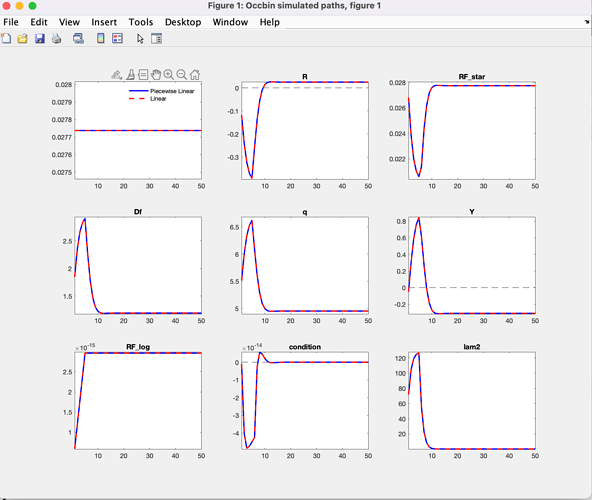Hi professor, I was running a model where there is a budget constraints.
The budget constraint is
exp(RF)*exp(Df)/exp(pi(+1))=exp(kappa)*exp(q(+1))*exp(Hcf);
RF is mortgage rate, Df is debt at time t, kappa is the LTV, q is the housing price, Hcf is housing volume. lam2 is the Lagrange multiplier of budget constraint. ‘condition’ is the auxiliary variable to check the whether the budget constraint is binding.
condition=exp(RF)*exp(Df)/exp(pi(+1))-exp(kappa)*exp(q(+1))*exp(Hcf);
Then I put
[name='debt', bind='mortgage']
lam2=0;
[name='debt', relax='mortgage']
exp(RF)*exp(Df)/exp(pi(+1))=exp(kappa)*exp(q(+1))*exp(Hcf);
1/exp(Ccf)=beta_tilda*exp(RF)/exp(pi(+1))*(1/exp(Ccf(+1))+lam2(+1));
condition=exp(RF)*exp(Df)/exp(pi(+1))-exp(kappa)*exp(q(+1))*exp(Hcf);
However, the results confused me a lot. It seems that the linear and piecewise linear model have nothing different to show. In addition, when condition is below zero, the lam2 doesn’t equal zero, which isn’t consistent with what I put in occbin constraint. Could you please give a hint about why this happen?Thank you so much for your help.
I am uploading whole files for your reference. Thank you again for your help.
test.zip (5.5 KB)
